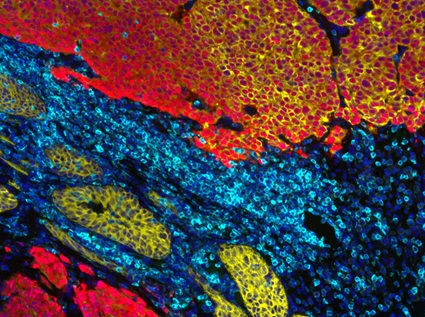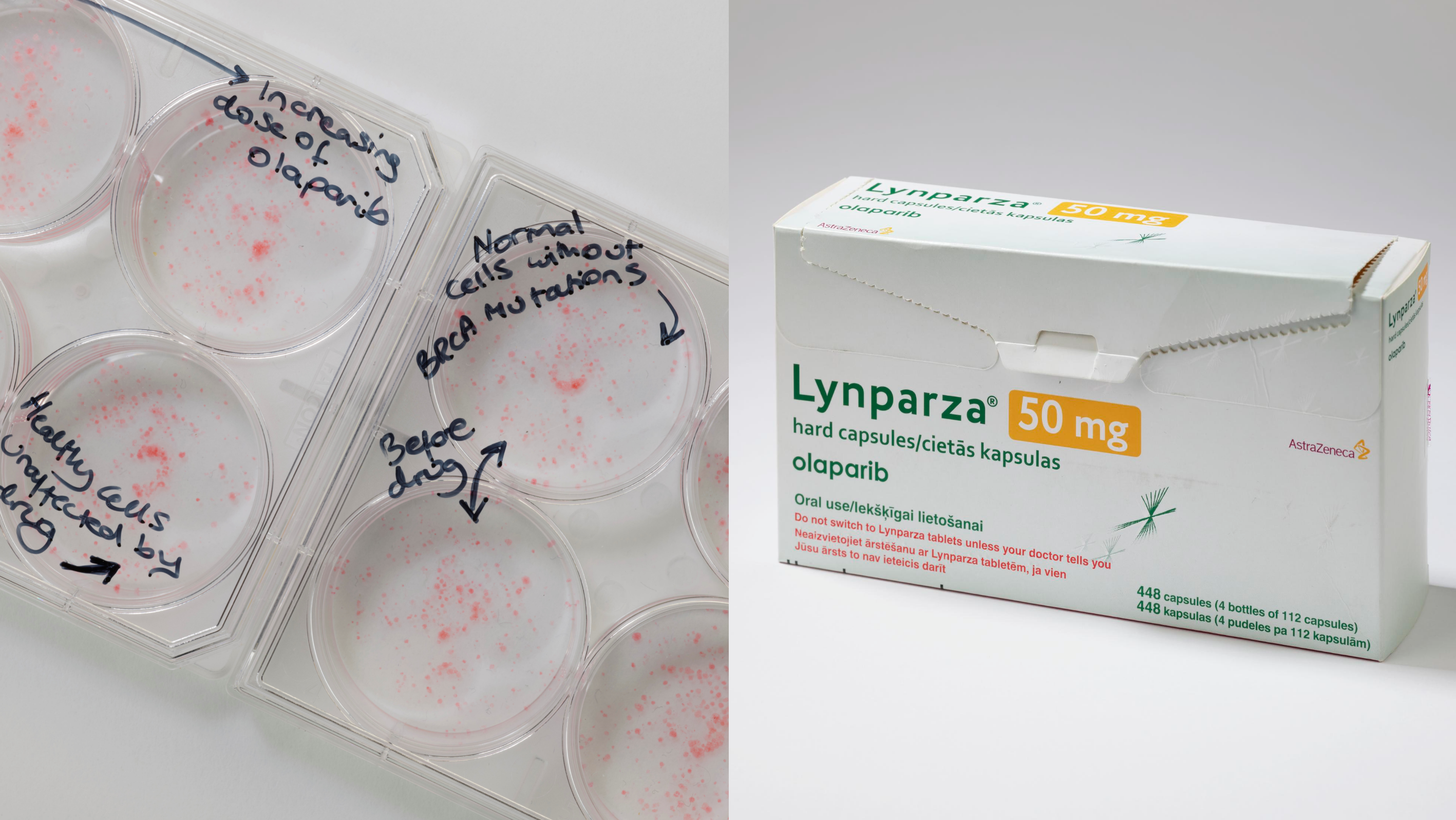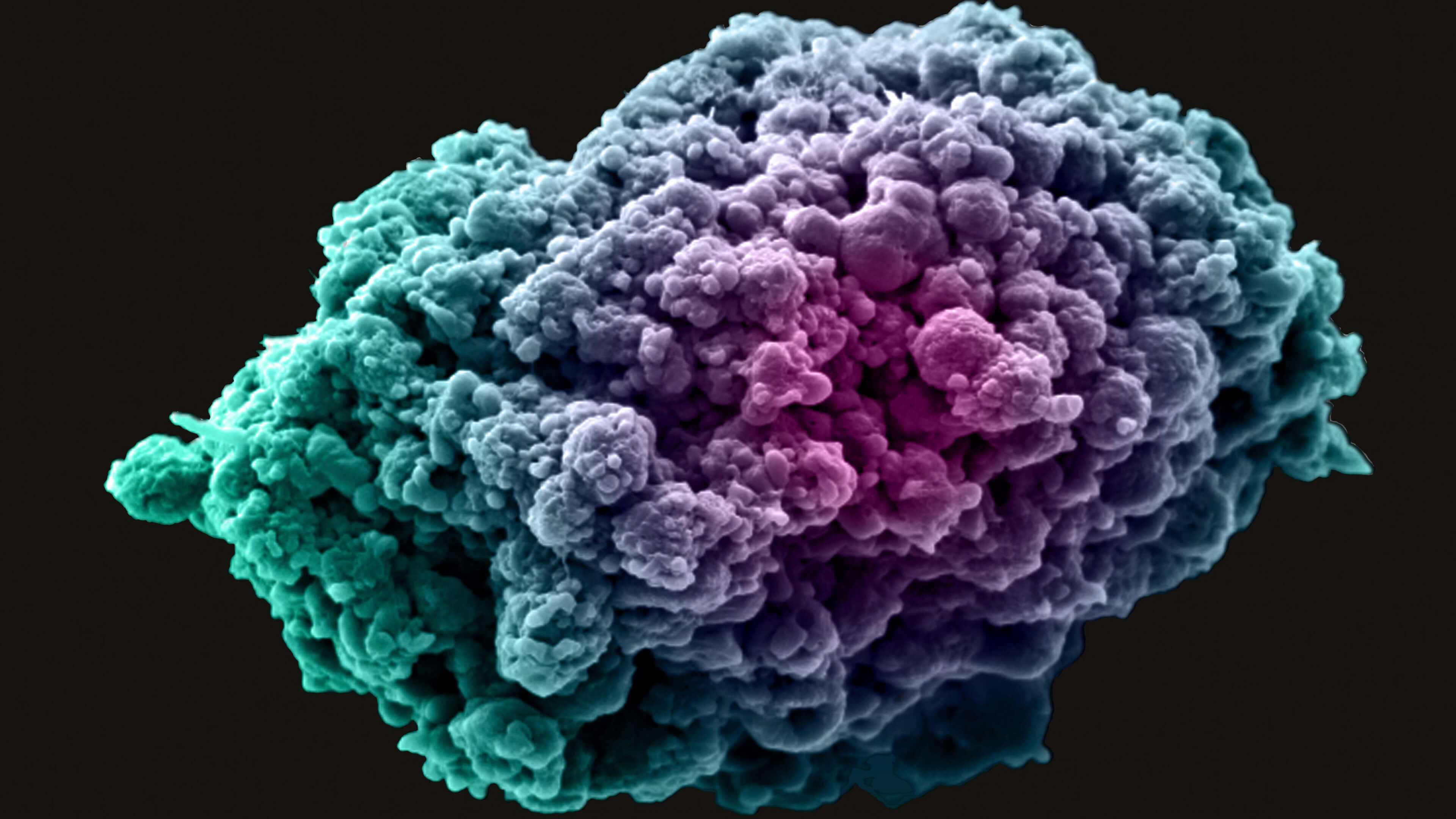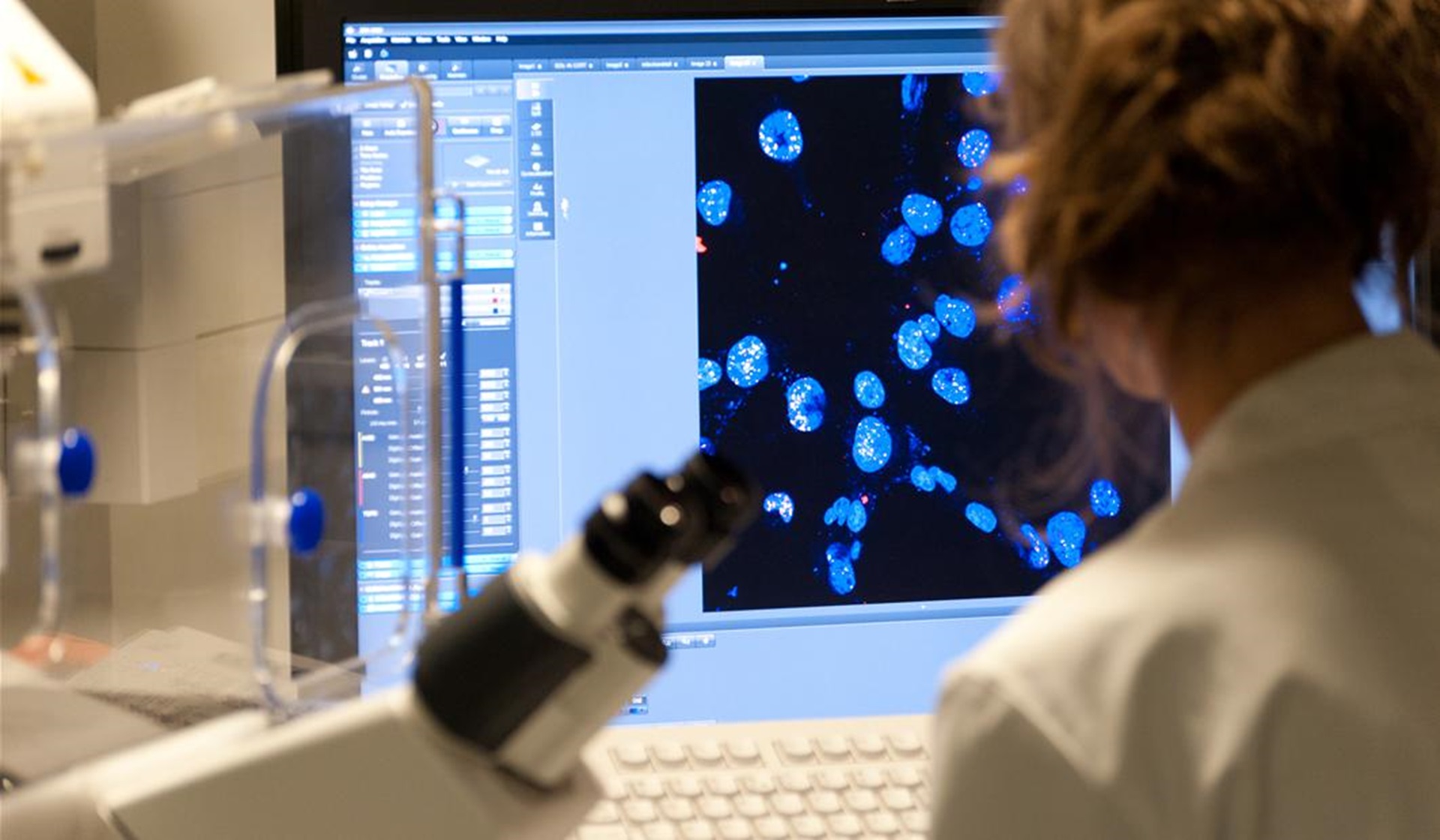Centre for Genome Stability
at the ICR and The Royal Marsden
Centre for Genome Stability (CGS) is a unique multidisciplinary programme bringing together experts from across the ICR and The Royal Marsden who work on DNA-damage response and genome instability research with clinical experts in the treatment of cancer.
How we research at this centre
Our world-leading centre of excellence aims to understand genetic, epigenetic and proteomic changes to genomic stability in the development of cancer in order to develop biomarkers and therapeutic targets for improved cancer treatment. This will allow us to apply multidisciplinary approaches to address important research questions, thus accelerating discoveries into the causes of tumorigenesis and delivering major clinical impacts, both nationally and internationally.
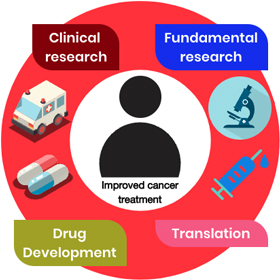
We aim to harness the breadth of expertise in genomic stability at the ICR to develop new and better therapies against cancer to make the most meaningful impact in clinics.
The centre will establish a single-domain antibody screening facility to generate DNA-repair related biomarker detection and intracellular antibody protein perturbation tools.
The Centre's main themes are as follows:
Molecular Mechanisms of Genome Stability Maintenance
Maintenance of genome stability is accomplished throughout the cell cycle by a complex network of proteins referred to as the DNA-damage response (DDR) pathways. Mutations in DDR factors are associated with elevated cancer predisposition. Understanding this will allow us to target tumour-specific DDR dependencies for improved cancer treatments.
Understanding Replication Stress Responses
Cells control DNA replication with the highest possible fidelity in order to prevent catastrophic changes to their genome. Understanding how DNA replication and repair machineries function and how these processes differ in cancer cells could provide new prognostic tools and therapeutic targets.
Integrative Systems Biology of Cancer and Ageing
We will develop tools to interrogate large data sets of genetic, genomic and proteomic information to generate hypotheses for experimental analysis, with the ultimate goal of understanding the changes that occur to the genomes and proteomes of cells as they transition to a cancerous or aged state.
Genome Instability and Cancer Therapeutics
New dependencies within the DDR pathways may represent targetable vulnerabilities in cancer cells, with a major focus on synthetic-lethal interactions and over-reliance on DDR pathways allowing for selective killing of cancer cells.
We want to accelerate the translation and delivery of our research.
As one of the world’s most influential cancer research institutes, we discover more new cancer drugs than any other academic centre in the world. We have made game-changing discoveries that revolutionised the way cancer is studied and treated.
Work with us in the Centre for Genome Stability to develop and commercialise our novel discoveries to defeat cancer. Contact us at [email protected] to work with us.
Internal collaborative opportunities
The Centre supports activities to bring together genome stability expertise across the ICR and The Royal Marsden in order to support and develop new collaborative opportunities.
Centre short talk series
Participate in our series of short talks and hear from colleagues. Next event is expected to take place in October 2024. Further details TBC.
Single-domain Antibody Facility
We have established our Single-domain Antibody Facility with ongoing pilot studies. There will be a call for screening projects.
Requirements to access the facility
Protein/antigen concentration of 500µg – 1mg, with objective of antibody for advice on tag (i.e. denatured/native form of protein). Final validation to be undertaken by research teams due to limited capacity within the facility. If you are interested to find out more, please contact Dr Divya Duscharla at [email protected].
Clinical Research Fellowships
Colleagues across the ICR and The Royal Marsden can apply to appoint Clinical Research Fellows (3-year PhD), addressing a reverse translation topic (bed-to-benchside) and involving clinical and fundamental research labs.
We are now accepting outline project proposals from potential supervisors for the next round of Clinical Research Fellowships for 2025/26 entry.
Please contact [email protected] to express your interest or if you have any questions.
Our researchers at this centre
Fundamental research
Biography
Professor Rabbitts obtained his PhD at the National Institute for Medical Research, Mill Hill, London, in 1971. He became a Research Fellow at the University of Edinburgh, in the Institute of Animal Genetics, followed by a Post-Doctoral Fellowship in Cesar Milstein’s lab at the MRC Laboratory of Molecular Biology. He became a Group Leader at the Laboratory of Molecular Biology in 1978 and the Director at the Leeds Institute for Molecular Medicine (LIMM) in 2007.
He was Professor of Molecular Biology in the Weatherall Institute of Molecular Medicine, MRC Molecular Haematology Unit in the University of Oxford.
He is a fellow of the Royal Society, a fellow of the Academy of Medical Sciences, an EMBO Member, and has been the recipient of the Colworth medal, CIBA prize and the Clotten Foundation Prize in recognition for his work on the diversity and rearrangement of human antibody genes and chromosomal translocation genes. In 2022, he was elected as a Fellow of the American Association of Cancer Research Academy.
He has significant experience with biotechnology, having been the chairman of the scientific advisory boards of Cambridge Antibody Technology until its stock market launch, and of Quadrant Healthcare until its acquisition by Elan, as well as of Kymab. He is currently an advisor to several start-up biotech companies, and is a co-founder of both Orbit Discovery and Quadrucept Bio Ltd.
Professor Rabbitts' research focuses on developing technologies using intracellular antibody fragments and small molecule derivatives, mainly aimed at targeting chromosomal translocation protein products. His achievements span several disciplines within molecular biology, including human antibody gene diversity, chromosomal translocations in cancer and pre-clinical modelling of chromosomal translocations.
At The Institute of Cancer Research, Professor Rabbitts works closely with our Medicinal Chemistry groups, headed up Professor Ian Collins, to explore how his expertise in intracellular antibody selection technology will help to identify difficult-to-drug targets.
Professor Rabbitts’ group uses molecular biology to establish new technologies to study and target cancer, particularly chromosomal translocation genes that affect proliferation and differentiation from cancer initiating cells to overt cancer and in epithelial cancers, to invasive disease.
The main ongoing theme of his work involves establishing technologies to target protein function inside cells particularly protein-protein interactions, using antibody fragments (with novel warheads) as drug surrogates for functional ablation of target proteins (intracellular immunotherapy programme). By isolating small molecules that mirror the inhibitory properties of the intracellular antibody fragments, the goal is to develop specific and potent reagents to study cancer development and drug-like molecules as leads for therapeutic drug development.
A major problem in using intracellular antibody fragments in therapy is delivery into cancer cells and this is being tackled using lipid nanoparticle delivery approaches.
Thus, to facilitate drug delivery (both intracellular antibody fragments, that he calls these macrodrugs to distinguish these from conventional drugs, and derived small molecules), he is examining cell surface protein expression in tumours to define cell surface proteins that could be used for homing of therapeutics, such as their nanoparticles that have encapsulated macrodrugs or small molecules derived from the macrodrugs.
Professor Rabbitts joined the Institute of Cancer Research in March 2020. Work in his lab is funded by the ICR, by Blood Cancer UK, and by the Kay Kendall Leukaemia Fund.
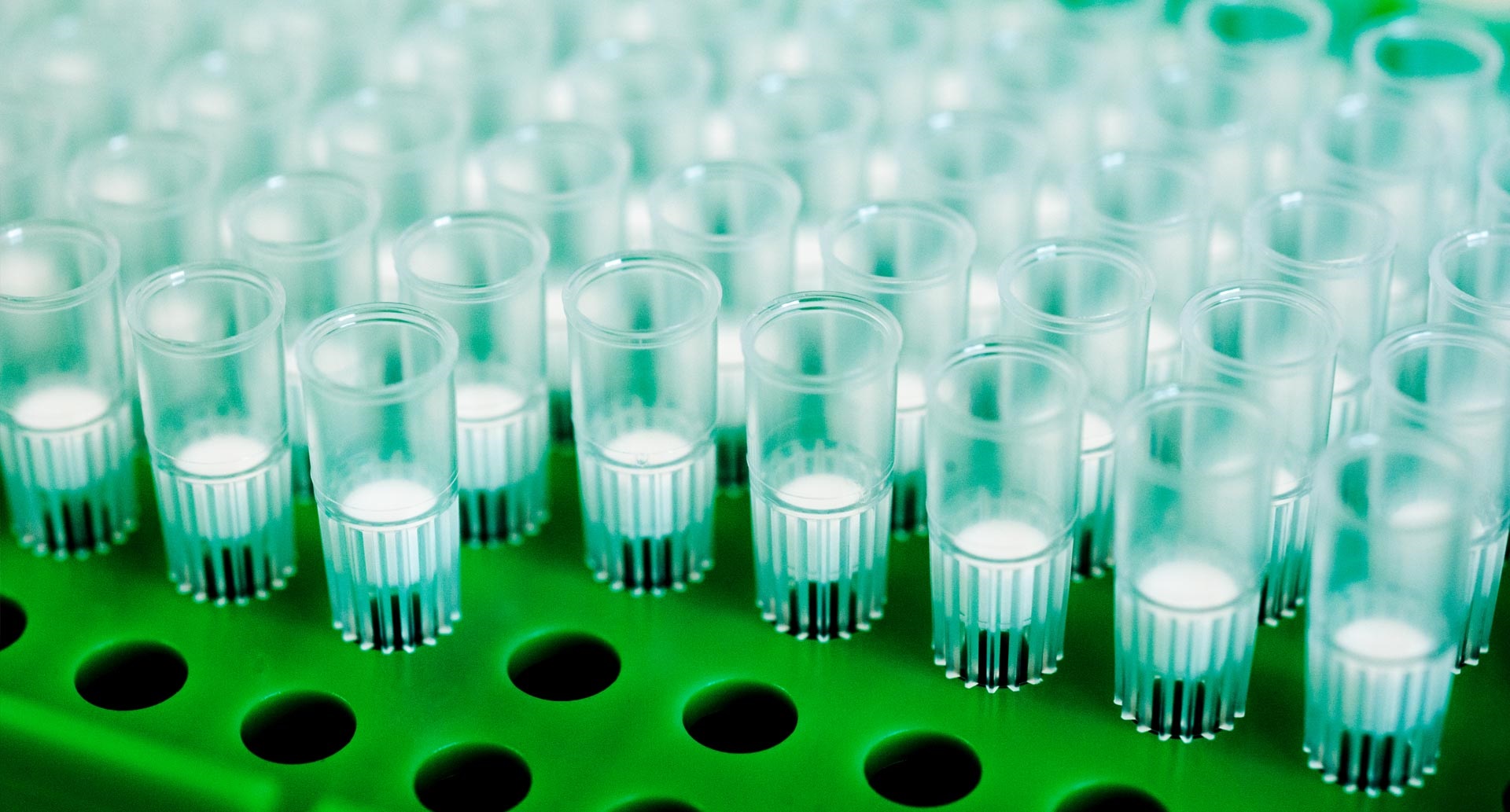
.png?sfvrsn=38d02ad6_1)
